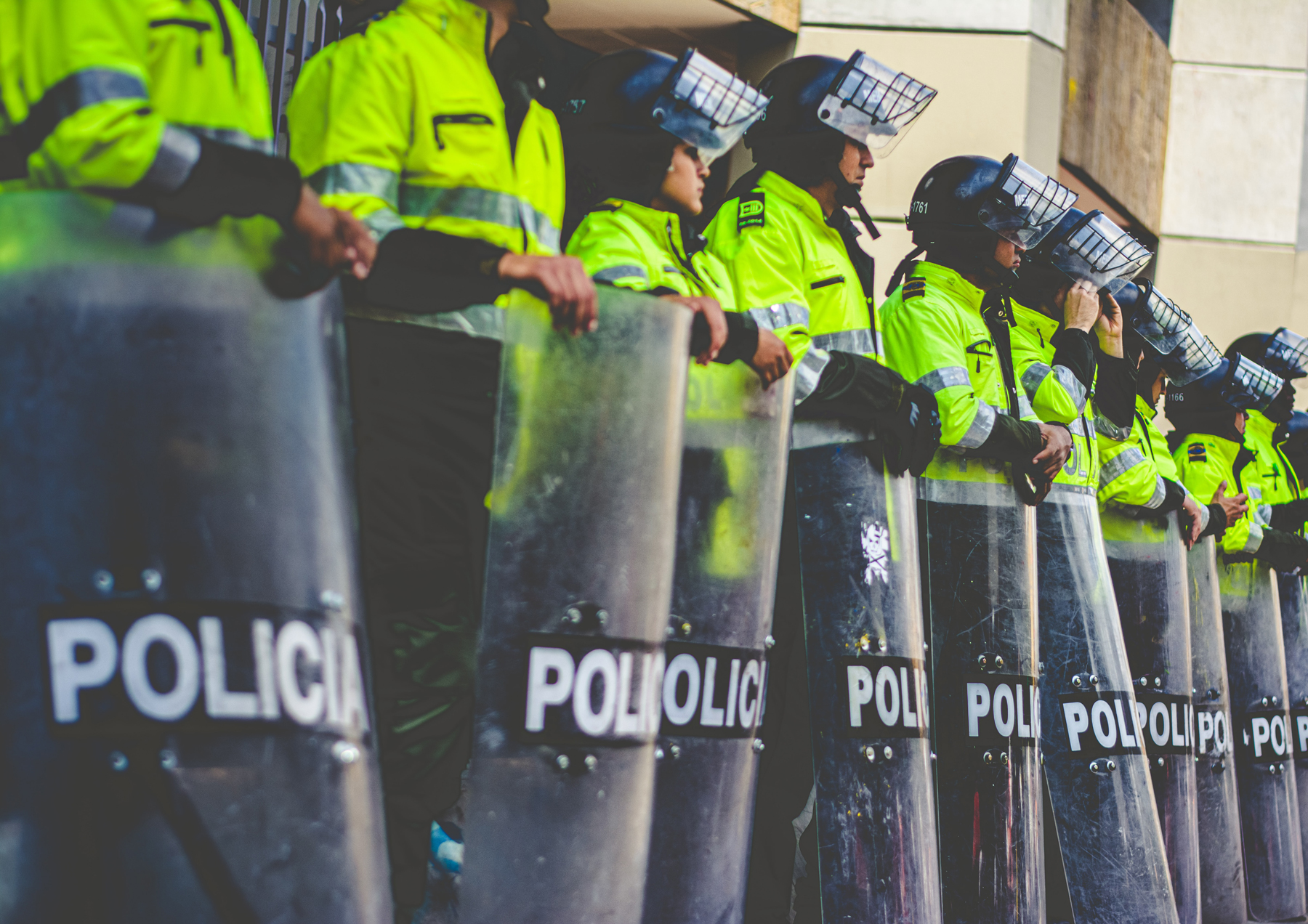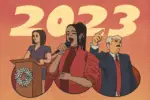Americans are ready to overhaul the United States law enforcement system. The message is loud and clear: reallocate funds and reform. The calls for change are not only confined to the U.S., but are echoing throughout the world. Millions of eyes are on global leaders, awaiting appropriate responses to citizen demands.
Some leaders have, both currently and historically, chosen to commit to ensuring the safety of all citizens. Unfortunately, there’s movement in the opposite direction by some other prominent actors. Several autocratic and “strong man” regimes see law enforcement as a vehicle for total dominance, and are not looking to improve the system whatsoever.
Leaders seem to fall either into or between two main categories in the realm of law enforcement: those who strive to keep policing in check, ensuring that it serves the people with truth and without prejudice; and those who use law enforcement to bolster their regimes by any means necessary. Leaders’ current and previous words and actions regarding policing are indicative of who will effect positive change going forward, and who will strengthen the systems that do more harm than good. Although it is unlikely any leader will completely solve historically rooted defects in law enforcement, they must try. Unfortunately, some make it worse.
Leaders Striving to Be Better and to Do Better
Many countries are facing shameful statistics and narratives of repeated unjust law enforcement activity. Notably, many leaders have vocalized an intent to be better. They are imperfect, but recognize their flaws, therefore uniting with the force of the people rather than suppressing it.
In Canada, one country where Black and Indigenous people are disproportionately imprisoned and shot by the police, Prime Minister Justin Trudeau acknowledged the systemic racism within their legal system and the duty of the government to address it. He denounced the fact that “people are all too often treated like criminals instead of receiving the support that they need.”
Whether or not Trudeau will take the necessary steps to create tangible change will define his legacy. Indeed, actions speak louder than words. However, political power gives enormous weight to words from leaders like Trudeau. Leadership is an amplifier, allowing voices to reach millions of ears. Leaders’ words can remind, they can sway opinions and, ultimately, they can provoke political change.
Angela Merkel, the chancellor of Germany, responded to the murder of George Floyd similarly with a call to German citizens to recognize the racism and police brutality that exists in their country. In Germany, police training emphasizes de-escalation, and can range from two and a half to four years; this contrasts with the mere five month firearm-centered training requirement for many officers in the United States.
Germany accepted responsibility and remorse for the brutal Nazi regime, under which police power escalated to abhorrent and devastating levels. They constantly scrutinize policing policies to help keep them in check. They hold this mirror to policing policies to help keep them in check. The United States has similarly abhorrent aspects of its history, extending from fugitive slave laws to Jim Crow to present day racial profiling and discriminatory practices.
It’s time to hold up a mirror, look at our reflection and shape law enforcement to completely and unconditionally fulfill its promise: to serve and to protect. This will involve responsive leadership that recognizes a problematic law enforcement and vows to improve it.
In 2001, Portugal’s leadership implemented a radical program that would drastically change law enforcement and improve the fate of many citizens thereafter. The nation decriminalized all drug use, and pivoted the reallocated billions in excess law enforcement expenditures to rehabilitation and medical treatment instead. Drug addiction became a disease rather than a punishable offense. For example, the sentence for anyone found in possession of anything less than a 10-day supply of any drug is a visitation to a commission made up of a doctor, a social worker and a lawyer who offer guidance and resources for treatment.
The number of people in treatment increased 60% from 1998 to 2011. In 2017, the number of estimated heroin users was down to a quarter of the number of users in 2001. Overdoses fell by 85% (before a small increase after the recent economic crisis in Europe). Portugal’s success accentuates the sheer failure of the U.S., where the drug crisis is “handled” with aggressive imprisonment; where only 10% of addicts can access treatment; and where numbers of addicts and overdoses continue to swell. Portugal’s leadership recognized that overextended law enforcement perpetuates civilian suffering, and acted accordingly. It is a model for other nations to follow when redefining the duties of the police.
Leaders Using Law Enforcement to Thrust Their Agendas
Textbooks and newspapers are replete with stories of political leaders capitalizing on fear to justify control and use of the military. Promises to cut down on crime might seem appealing in theory, but often culminate in abuses of power, paramilitary policing and human rights violations. In the U.S., the war on crime developed into an inherently racist system of severe punishment that imprisons marginalized people at enormous rates.
Elected as president of the Philippines in 2016, Rodrigo Duterte presented this “anti-crime” red flag early on in his campaign trail. Once in power, he began his own war on drugs, stating he would be “happy to slaughter” the 3 million drug addicts in the Philippines. As of February of this year, the staggering body count of suspected drug users is nearing 30,000. Amidst the COVID-19 pandemic, he extended a “shoot to kill” policy to law enforcement.
Jair Bolsonaro, president of Brazil, is a former military officer whose campaign platform was dedicated to expediting the killing of criminals. As president, Bolsonaro has pushed military forces that police low-income communities to fire at anyone appearing to carry a weapon, publicly declaring “a good criminal is a dead criminal.” One can also draw parallels here to President Trump, who, in 2017, encouraged police to be more careless in their treatment of suspects, and, in 2020, employed the military against peaceful protesters whilst tweeting inflammatory drivel.
Bolsonaro only seems to want police “reform” when the police “f— with [his] family.” At least two of his sons are suspected felons, but details of his family’s indecency are limited — likely thanks to Bolsonaro’s tight grip on Brazil’s law enforcement. In a cabinet meeting this May, Bolsonaro reportedly demanded access to police intelligence to curb investigations involving his family members.
Former justice minister Sergio Moro alleged that Bolsonaro tried to replace the police director with a “friendly face,” corrupting the system in his favor. Bolsonaro said to reporters, “I am not, nor have I ever been worried about the federal police. The federal police have never investigated anyone in my family.” The defensive rhetoric sounds familiar, doesn’t it?
In 2017, President Trump publicly recounted the time he encouraged police to be more careless in their treatment of suspects: “When you see these thugs being thrown into the back of a paddy wagon … I said, ‘Please don’t be too nice,’” and “When you guys put somebody in the car and you’re protecting their head [with your hand]… I said, ‘You can take the hand away, okay?’”
In 2020, he employed the military against peaceful protestors whilst tweeting inflammatory drivel: “when the looting starts, the shooting starts.” He ordered the tear-gassing of peaceful protestors to clear the area around a church for a photo shoot. He expressed fiery criticism of Mayor De Blasio’s decision to have “Black Lives Matter” painted on Fifth Avenue, calling it a “symbol of hate” that will “[denigrate] this luxury Avenue”; he said “spend this money fighting crime instead!” As the 2020 Presidential election nears, the U.S. has reached a point of enormous potential for thorough and long-lasting change. It will require leadership that does not use pro-violence rhetoric, does not want criminals dead, and does not exacerbate the problems that plague the United States as a result of over-militarized law enforcement.
The list of world leaders molding the police into a ruthless paramilitary force is growing, therefore threatening the well-being of citizens around the world. Think of the Tiananmen Square incident and the infamous government-sanctioned murder of peaceful protesters; think of Putin’s assassinations of political enemies and journalists; think of the nearly identical abuses in Venezuela and other parts of Latin America.
Once leaders consider themselves to have near absolute power, they will use the police to help them absolutely corrupt their countries. It is essential for democracies to elect leaders who represent the people and do not use or tolerate excessive force against them. Upholding human rights should be at the forefront of all policy and actions. Leaders must be held accountable for their words and for their behavior, both within borders and across them.
















